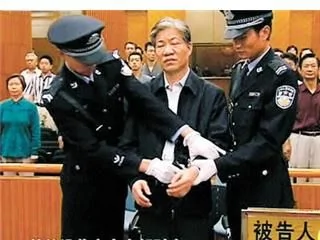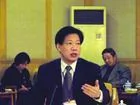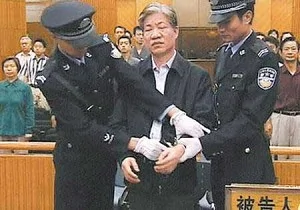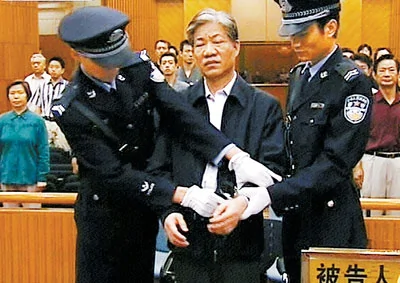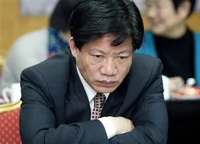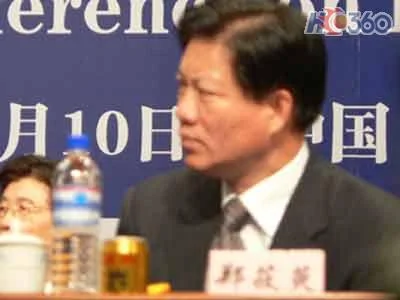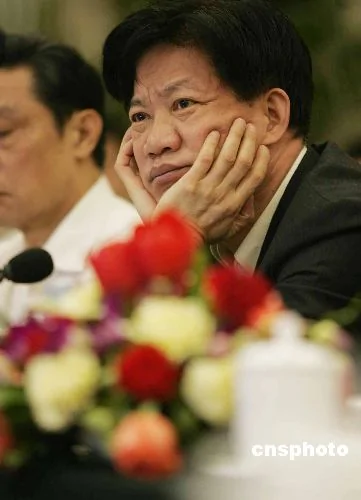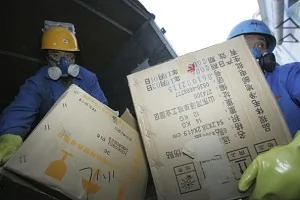中国受污染食品及日用品出口引起的轩然大波尚未平息。《纽约时报》七月16日发表社论说,北京领导人或许以为,处决了国家食品药品监督管理局原局长郑筱萸,便足以使疑虑重重的国内外消费者相信,现在中国产品的安全性有了保障。但是他们估计错了。
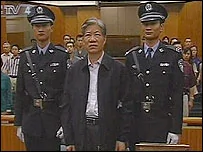
郑筱萸承认自己曾经受贿 |
因为中国需要的,是有效、清晰的规范管理系统。北京当局应当清楚了解,如果继续出口受污染食品、玩具、牙膏等,中国的出口增长将受到损害。如果上述规范管理系统迟迟不建立,或者不能保证一定会建立,美国的监管人员为了保护美国消费者,只能把更多的中国产品拒之门外。
社论指中国的管理功能不彰是根深蒂固的问题。加上社会缺乏公共责任心,劣质的公司可以为所欲为,并成为贪官污吏的保护伞。后果就是河流遭到氨污染,牙膏添加工业溶剂,以及抗生素污染等。好在北京领导者终于首次认识到,需要制定更多、更完善的食品监察管理规章。
但是对每年进口价值3000亿美元中国产品的美国来说,等待北京当局采取行动,问题就太大、太复杂、太紧迫了。所以像,沃尔马(Wal-Mart)这类进口商,需要提供第一道防线,派遣检查人员前往中国供应商的工厂,确保产品达到可以接受的标准。无疑美国政府必须督促这些进口商照办。
不过该报记者马丁(ANDREW MARTIN)和帕尔摩(GRIFF PALMER)日前的报道也指出,中国并不是唯一的污染食品来源。还有其他的国家也是。例如从印度进口的黑胡椒便带有沙门氏菌。墨西哥的螃蟹肉太脏而不能食用。还有丹麦的糖果贴错了标签等等。
实际上美国联邦食品及药物管理局的一份分析资料显示,去年联邦检查人员查出有问题的印度和墨西哥进口食品,比有问题的中国食品多。美国当局多次公布中国受污染海产品,包括上个月暂停进口五种中国养殖海产品。但是联邦调查人员禁止进口加勒比海多米尼加共和国和丹麦产品的次数更多。
例如,去年多米尼加共和国的产品被查出有问题而禁止进口,共有817次,原因通常是含有已经禁用的杀虫剂。而丹麦糖果产品被禁止入口,也多达520次。相比之下,去年中国海产品在美国口岸被禁止入口,一共有391次,远少于上述两国。
曾在联邦食品及药物管理局工作28年,2005年退休时担任该局规章事务办公室进口运作及政策主任的尼尔森( Carl R. Nielsen)说:“事实是,这完全不是单独一个国家的问题。我们正在经历着更大规模的全球化问题。”
就在上个月,联邦食品及药物管理局不仅对中国进口鱼类发出了警告,也对墨西哥甜瓜、印度大米等食品发出了同类警告。墨西哥驻美大使馆发言人表示,与该国对美国出口的大量食品相比,出问题的可以说微不足道。印度驻美大使馆商务参赞声称,该国已经强化了食品安全法律,目前一些问题是许多小型食品生产商加工过程中偶然发生的。
从去年七月到今年六月,联邦食品及药物管理局截查了2,723艘装载食品、药物、化妆品、医疗器材、动物药品、某些电子产品的中国船,2,620艘印度船,1,876艘墨西哥船, 887艘多米尼加共和国船。但是,中国出口到美国的货品比后三个国家多。去年美国进口的中国货品价值2,880亿美元,墨西哥货物价值1,980亿美元,印度220亿美元,多米尼加共和国53亿美元。
Editorial
Killing the Regulator
Published: July 16, 2007 New York Times
The Chinese government’s extraordinary decision to execute its chief food and drug regulator for taking bribes and allowing the sale of tainted drugs is a perfect example of all that is wrong with China’s approach to regulation.
Beijing’s leaders — who disdain the idea of their own accountability — may think that killing the regulator is enough to reassure consumers at home and abroad that China is now ready to guarantee the safety of its products. But they’re wrong.
What China needs is an effective and transparent regulatory system and a clear understanding that its export boom will suffer if it continues to sell tainted food, toys and toothpaste. Until that happens — and there is no guarantee that it will — American regulators will have to do more to screen Chinese imports to protect American consumers.
China’s dysfunction has deep roots. The Communist Party leadership has muzzled consumer advocacy groups and the press. The government is also loath to do anything that might hinder the country’s breakneck economic growth. With no public accountability, shoddy companies are allowed to cut every possible corner in their pursuit of business, often under the protection of corrupt government officials.
The results include rivers laced with ammonia and toothpaste sweetened with an industrial solvent, as well as tainted antibiotics that have killed more than a dozen children and sickened hundreds. The good news is that for the first time China’s leaders are talking about the need for more and better regulation. And Washington and other governments can help with offers of technical advice and warnings about the cost of failing to take it.
But the scope of the problem is too big, too complex and too urgent for the United States — with $300 billion worth of Chinese imports a year — to wait for Beijing to act. American importers need to provide the first line of defense. Companies like Wal-Mart should send inspectors regularly to visit the factories of Chinese suppliers, to ensure that products are up to acceptable standards. Ultimately the American government will have to enforce these norms.
Unfortunately, the Bush administration has spent the last five-plus years emasculating the American regulatory system. The Consumer Product Safety Commission has seen its budgets repeatedly cut. The Food and Drug Administration has not received the resources it needs and today inspects only a minute share of all imported food.
It is hard to imagine anything good coming out of the China export scandals. But perhaps they will persuade Congress’s new Democratic leaders that America also needs a stronger and more transparent regulatory system.


